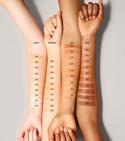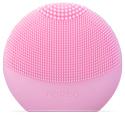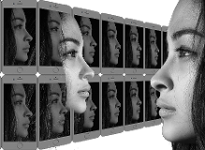Brands
Digital Technologies Shape New Business Models Of Cosmetic Firms
 Digital technologies and applications, including social media, continue to shape new business models for cosmetic firms, challenging established brands to adapt to changing consumer behavior. There is a growing need for cosmetic brands to shift from a product-based to an experience-based model. L’Oréal, for instance, is using artificial intelligence to map out market trends and personalize its service for consumers while Elizabeth Arden partnered with YouCam Makeup app to let customers try products virtually using their phones' cameras. Other brands, like Fenty Beauty by pop star Rihanna, bank on the inclusivity of their products: Its ProFilter Foundation line aims to cater to every skin color with its 40 shades. Social media influencers also present opportunities for brands to reach out to new markets. In 2017, beauty-related YouTube videos recorded 88 billion views, a 60% increase from the preceding year. Consumers won’t accept a one-size-fits all approach from brands, which can leverage consumer data to offer a more targeted service. A recent Accenture Interactive study found that consumers prefer to buy online from retailers that know their previous purchases and can recommend products based on them.[Image Credit: © Kendo Holdings]
Digital technologies and applications, including social media, continue to shape new business models for cosmetic firms, challenging established brands to adapt to changing consumer behavior. There is a growing need for cosmetic brands to shift from a product-based to an experience-based model. L’Oréal, for instance, is using artificial intelligence to map out market trends and personalize its service for consumers while Elizabeth Arden partnered with YouCam Makeup app to let customers try products virtually using their phones' cameras. Other brands, like Fenty Beauty by pop star Rihanna, bank on the inclusivity of their products: Its ProFilter Foundation line aims to cater to every skin color with its 40 shades. Social media influencers also present opportunities for brands to reach out to new markets. In 2017, beauty-related YouTube videos recorded 88 billion views, a 60% increase from the preceding year. Consumers won’t accept a one-size-fits all approach from brands, which can leverage consumer data to offer a more targeted service. A recent Accenture Interactive study found that consumers prefer to buy online from retailers that know their previous purchases and can recommend products based on them.[Image Credit: © Kendo Holdings]
Japan’s SK-II Opens Pop-Up Smart Store in Tokyo
 Japanese beauty brand SK-II has opened a pop-up store in Tokyo’s Hajuku district. The Future X Smart Store is an experiential concept outlet that uses artificial intelligence and face recognition. As they enter, visitors see digital art generated by their own face and body motions. The store has cubicles with smart mirrors that scan and analyze customers’ skin. A smart beauty wall upstairs recognizes the customer, presents the analysis, recommends products, and displays how they would look. This pop-up run through June 28.[Image Credit: © Procter & Gamble]
Japanese beauty brand SK-II has opened a pop-up store in Tokyo’s Hajuku district. The Future X Smart Store is an experiential concept outlet that uses artificial intelligence and face recognition. As they enter, visitors see digital art generated by their own face and body motions. The store has cubicles with smart mirrors that scan and analyze customers’ skin. A smart beauty wall upstairs recognizes the customer, presents the analysis, recommends products, and displays how they would look. This pop-up run through June 28.[Image Credit: © Procter & Gamble]
Blend-It-Yourself Beauty Brands Are Adopting AI To Drive Personalization
Companies
Bourjois' Magic Mirror May Turn Facebook Into A Shopping Experience
 British technology agency Holition is working on a new Facebook mobile app feature that will allow beauty enthusiasts to try on makeup products virtually with special camera filters. For this project, Holition will utilize the technology behind the magic mirror of French beauty brand Bourjois in its Paris flagship store. Bourjois's magic mirror uses 3D sensing smart camera technology to show shoppers how cosmetics would look like on their faces when they touch select a product in the store. The mirror can also suggest makeup products applicable to the shoppers’ skin tones. Holition plans to produce similar results with its Facebook filter which will take advantage of the social media app's AR mesh software. The filter will eventually be connected to Facebook's deep linking feature that will help users know where to buy the makeup products.[Image Credit: © Coty Inc]
British technology agency Holition is working on a new Facebook mobile app feature that will allow beauty enthusiasts to try on makeup products virtually with special camera filters. For this project, Holition will utilize the technology behind the magic mirror of French beauty brand Bourjois in its Paris flagship store. Bourjois's magic mirror uses 3D sensing smart camera technology to show shoppers how cosmetics would look like on their faces when they touch select a product in the store. The mirror can also suggest makeup products applicable to the shoppers’ skin tones. Holition plans to produce similar results with its Facebook filter which will take advantage of the social media app's AR mesh software. The filter will eventually be connected to Facebook's deep linking feature that will help users know where to buy the makeup products.[Image Credit: © Coty Inc]
Saks Fifth Avenue Uses Magic Mirrors To Attract Instore Customers
 As part of its efforts to lure buyers into its physical stores and compete with other retailers like Ulta and Sephora, Saks Fifth Avenue overhauled its beauty department and installed "magic mirrors”. Customers can opt to have the virtual look emailed to them. Magic mirrors are just one part of the store’s efforts to upgrade its beauty customer experience, which now includes a concierge to assist shoppers and space for treatment rooms and events, such as tutorials and presentations. A move to the second floor has allowed more space for the cosmetics department.[Image Credit: © Saks Fifth Avenue]
As part of its efforts to lure buyers into its physical stores and compete with other retailers like Ulta and Sephora, Saks Fifth Avenue overhauled its beauty department and installed "magic mirrors”. Customers can opt to have the virtual look emailed to them. Magic mirrors are just one part of the store’s efforts to upgrade its beauty customer experience, which now includes a concierge to assist shoppers and space for treatment rooms and events, such as tutorials and presentations. A move to the second floor has allowed more space for the cosmetics department.[Image Credit: © Saks Fifth Avenue]
L’Oréal Acquires Tech Startup Modiface For Improves AI, AR Services
 L’Oréal has acquired its first technology startup, Modiface, for an undisclosed sum to help the group improve how it incorporates advanced technology into its brand offerings. Lubomira Rochet, L’Oréal’s chief digital officer, underscored the importance of global brands adapting to digital developments in order to survive but also said that L’Oréal’s strategy is to determine the most appropriate technologies for its brands and scale them across the group’s websites and stores, but in a way that works for local conditions. It is looking to develop technologies via a number of routes, including acquisitions; Station-F, a startup campus in France; and the Founders Factory, a digital accelerator based in London.[Image Credit: © L’Oréal]
L’Oréal has acquired its first technology startup, Modiface, for an undisclosed sum to help the group improve how it incorporates advanced technology into its brand offerings. Lubomira Rochet, L’Oréal’s chief digital officer, underscored the importance of global brands adapting to digital developments in order to survive but also said that L’Oréal’s strategy is to determine the most appropriate technologies for its brands and scale them across the group’s websites and stores, but in a way that works for local conditions. It is looking to develop technologies via a number of routes, including acquisitions; Station-F, a startup campus in France; and the Founders Factory, a digital accelerator based in London.[Image Credit: © L’Oréal]
Coty Chooses Three AI Startups To Help It Improve Customer Experience
 Multinational beauty company Coty unveiled the three winners of its digital accelerator program and tasked the technology startups to help the group develop artificial intelligence tools that will drive “more seamless shopper experiences.” First-prize winner Nudest presented an algorithm that matches skin tone to products for personalized recommendations. Other winners included Skingenie’s skincare advisor, which analyzes the customer’s DNA and lifestyle using AI for product recommendations, and Glamtech’s solution that analyzes skin in real time, tracks performance and provides product recommendations. Each received cash prizes and will have access to a range of Coty support and resources. [Image Credit: © My Nudest, Inc.]
Multinational beauty company Coty unveiled the three winners of its digital accelerator program and tasked the technology startups to help the group develop artificial intelligence tools that will drive “more seamless shopper experiences.” First-prize winner Nudest presented an algorithm that matches skin tone to products for personalized recommendations. Other winners included Skingenie’s skincare advisor, which analyzes the customer’s DNA and lifestyle using AI for product recommendations, and Glamtech’s solution that analyzes skin in real time, tracks performance and provides product recommendations. Each received cash prizes and will have access to a range of Coty support and resources. [Image Credit: © My Nudest, Inc.]
Lush Tests New AI App In Package-Free Store
 Cosmetics company Lush is testing its Lush Lens mobile application, developed in-house. The app uses combines AI and product recognition, allowing users to scan products and access information, such as ingredient lists, even without packaging. It is being tested at Lush’s first ever “Naked” and package-free store in Milan, where visitors can use the app on the store’s Fairphone devices. Lush plans to roll out the app worldwide. It will also be available for consumers to download on to their smartphones.[Image Credit: © Lush Cosmetics]
Cosmetics company Lush is testing its Lush Lens mobile application, developed in-house. The app uses combines AI and product recognition, allowing users to scan products and access information, such as ingredient lists, even without packaging. It is being tested at Lush’s first ever “Naked” and package-free store in Milan, where visitors can use the app on the store’s Fairphone devices. Lush plans to roll out the app worldwide. It will also be available for consumers to download on to their smartphones.[Image Credit: © Lush Cosmetics]
Wunder2 Partners With YouCam Makeup For Virtual Try-On Website Feature
L’Oréal To Roll Out AR And Livestreaming Platform To All Of Its Brands
 Beauty company L’Oréal unveiled a new service to be rolled out later this year for its NYX Professional brand. The digital beauty assistant uses augmented reality and livestreaming to bring a personalized makeup counter experience to consumers’ homes. The company plans to roll out the solution, based on its March 2018 Modiface acquisition, for all of its brands across 65 markets. L’Oréal chose NYX as the first brand to offer the service because it is a “very social brand, a pro brand and a retail brand,” according to L’Oréal’s chief digital officer, Lubomira Rochet.[Image Credit: © NYX Professional Makeup]
Beauty company L’Oréal unveiled a new service to be rolled out later this year for its NYX Professional brand. The digital beauty assistant uses augmented reality and livestreaming to bring a personalized makeup counter experience to consumers’ homes. The company plans to roll out the solution, based on its March 2018 Modiface acquisition, for all of its brands across 65 markets. L’Oréal chose NYX as the first brand to offer the service because it is a “very social brand, a pro brand and a retail brand,” according to L’Oréal’s chief digital officer, Lubomira Rochet.[Image Credit: © NYX Professional Makeup]
China’s Millennials Fall In Love With Black Tech Beauty Products
 Skincare trends, referred to by industry observers as “black tech”, are becoming popular among millennial consumers in China. Three of the leading black-tech product categories are black-tech facial machines, with the ReFa Electronic Roller from Japan as a leading example; black-tech facial cleansers, such as those from Foreo; and black-tech massage boosters, including those from the SK-II brand. Facial rollers from ReFa accounted for 50 percent of the segment’s revenue in 2017, with more than $4 million worth of ReFa machines sold during the November 11 Singles Day shopping festival. Foreo’s facial cleanser became a social media favorite, with many celebrities posting themselves using the product. SK-II launched a massage booster in 2017, selling all of its 10,000 units during the company’s 2017 TMALL Super Brand Day event.[Image Credit: © ReFa USA]
Skincare trends, referred to by industry observers as “black tech”, are becoming popular among millennial consumers in China. Three of the leading black-tech product categories are black-tech facial machines, with the ReFa Electronic Roller from Japan as a leading example; black-tech facial cleansers, such as those from Foreo; and black-tech massage boosters, including those from the SK-II brand. Facial rollers from ReFa accounted for 50 percent of the segment’s revenue in 2017, with more than $4 million worth of ReFa machines sold during the November 11 Singles Day shopping festival. Foreo’s facial cleanser became a social media favorite, with many celebrities posting themselves using the product. SK-II launched a massage booster in 2017, selling all of its 10,000 units during the company’s 2017 TMALL Super Brand Day event.[Image Credit: © ReFa USA]
Perfect365 Allows Users To Earn Kin Cryptocurrency When Using App
Consumers
Brands Add Artificial Intelligence, Sensors, Other Technologies To Skincare Devices

Beauty brands are integrating technologies, including artificial intelligence, sensors, and Internet of Things, into their skincare devices designed to provide consumers with personalization and tailored information about their beauty care routines. Brands have their respective approaches to customization and consumer education, with Neutrogena, for example, developing products that come with sensors and cameras to offer consumers information on the health of their skin. For its part, Foreo has launched the Luna FoFo AI-enabled skincare device, while Clarisonic has introduced its Mia Smart facial massaging device.[Image Credit: © FOREO]
Samsung Joins Estee Lauder To Host 2018 Style Dimension Fashion And Beauty Event
Innovations
Perfect Joins Flying Solo NYC And YouCam Makeup To Offer AR Beauty Events During New York Fashion Week
 Perfect Corp. has partnered with fashion house Flying Solo NYC to provide consumers with an augmented reality beauty experience using the YouCam Makeup app at the 2018 New York Fashion Week. To be featured during the AR event are two new looks featuring airbrush accents and colorful lashes. These looks will be integrated into YouCam Makeup to allow users to virtually try on the looks. Also, YouCam and Flying Solo will live stream a beauty special event in the app.[Image Credit: © Perfect Corp]
Perfect Corp. has partnered with fashion house Flying Solo NYC to provide consumers with an augmented reality beauty experience using the YouCam Makeup app at the 2018 New York Fashion Week. To be featured during the AR event are two new looks featuring airbrush accents and colorful lashes. These looks will be integrated into YouCam Makeup to allow users to virtually try on the looks. Also, YouCam and Flying Solo will live stream a beauty special event in the app.[Image Credit: © Perfect Corp]
L’Oreal Paris Launches ModiFace-Enabled AR Try-On Tool
Market News
Macy’s Announces New Technologies For Better Customer Experience And Partnership With Facebook
 Macy’s revealed it is integrating new features, including virtual reality and augmented reality, to improve the experience of consumers shopping for furniture and beauty products. Also, the company said it will join forces with Facebook to bring almost 150 ecommerce brands to the retail chain’s The Market @ Macy’s retail platform. According to the retailer, the partnership will offer participating small businesses and ecommerce brands to take advantage of a Macy’s store environment during the holidays. During the Code Commerce On-Location Event in New York City, Macy’s will highlight several technologies, including virtual and augmented reality furniture shopping, augmented reality for beauty, beauty playground, and radio-frequency identification.[Image Credit: © macys.com]
Macy’s revealed it is integrating new features, including virtual reality and augmented reality, to improve the experience of consumers shopping for furniture and beauty products. Also, the company said it will join forces with Facebook to bring almost 150 ecommerce brands to the retail chain’s The Market @ Macy’s retail platform. According to the retailer, the partnership will offer participating small businesses and ecommerce brands to take advantage of a Macy’s store environment during the holidays. During the Code Commerce On-Location Event in New York City, Macy’s will highlight several technologies, including virtual and augmented reality furniture shopping, augmented reality for beauty, beauty playground, and radio-frequency identification.[Image Credit: © macys.com]
Copyright 2026 Business360, Inc.

